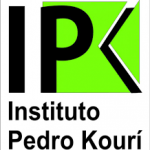Preliminary program
I INTERNATIONAL COURSE ON INTEGRATED VECTOR MANAGEMENT PRELIMINARY PROGRAM (MAY HAVE FURTHER CHANGES)
FIRST WEEK: THEORETICAL COURSE
- Antivectorial Surveillance and Fight Program in Cuba.
- Worldwide situation of medical entomology and vector control. Challenges and perspectives.
- Integrated vector managment. Multiple challenges.
- Impact of the COVID-19 pandemic on Antivectorial programs.
- Strengthening capacities for implementing integrated vector managment in the Americas. Progress and challenges.
- Interdisciplinary vision (epidemiology, social factors and the environment for integrated vector managment)
- Update on fields studies related to vector biogeography and ecology, in view of knowing the changes in population dynamics and their impact on vector control.
- Update on vector-borne diseases and progress in controlling them.
- Diptera and arthropods. Distribution and importance in public health.
- Entomological surveillance with an emphasis in Aedes aegypti in the times of COVID-19.
- Entomovirological surveillance and its introduction as one more tool for arbovirusis vector control.
- Update on resistance surveillance and resistance mechanism. Worldwide situation.
- Sterile-insect technique: a tool for integrated managment of insect vectors.
- Advances in the study of essential herbal oils in search of natural products for vector control.
- Study on the ecology of mollusks of medical-veterinary importance and host-parasite-environment interaction.
- Social determinants and social communication. Approaches in vector control.
- Community involvement in vector control. Weaknesses and strengths.
- Estimation of costs for vector control interventions.
(PRACTICE COURSE)
- Cuban Program of Antivectorial Fight. Field visits.
- Types of vector control methods. Environmental control, chemical control, and biological control. Development inhibitors. Generalities. Update on the use of these methods in anti–insect vector campaigns.
- Main insecticides used on vector control in the region of the Americas for vector insect control. Insecticides formulations. Preparation forms.
- Adulticide treatments: indoor and outdoor. Generalities. Equipment. Work organizations.
- Residual treatments. Equipment. Application techniques.
- Control of other vectors (mice and mollusks).
- Insecticide susceptibility and/or resistance tests.
- Laboratory tests with biological control (nematodes and Bacillus)
- Determining insecticide resistance mechanisms.
- Sterile-mosquito release for arbovirosis control.

